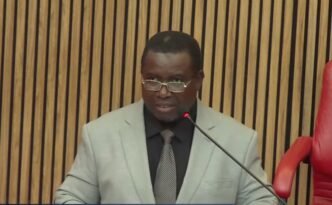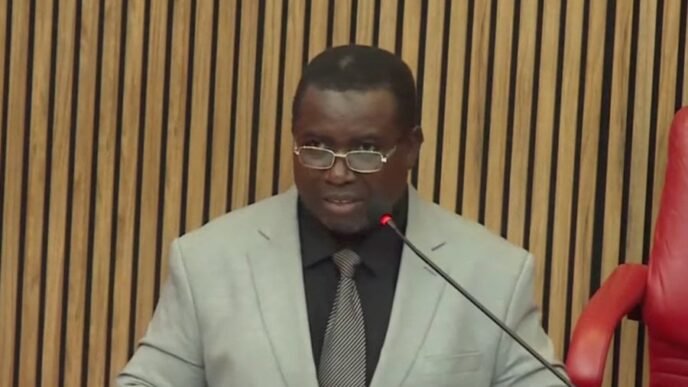Abuja, Nigeria — October 21, 2025
The Academic Staff Union of Universities (ASUU) has suspended its ongoing two-week warning strike, granting the Federal Government of Nigeria a one-month ultimatum to meet its outstanding demands or face a possible total and indefinite industrial action.
The decision followed an emergency National Executive Council (NEC) meeting held on Monday night at the Nnamdi Azikiwe University, Awka, Anambra State, where union leaders reviewed the government’s response to their grievances and the current state of tertiary education in the country.
Why ASUU Suspended the Strike
Addressing journalists after the meeting, ASUU President, Prof. Emmanuel Osodeke, said the union decided to suspend the warning strike to allow room for meaningful dialogue and to demonstrate good faith.
“After careful deliberations, the NEC resolved to suspend the warning strike for one month to give the Federal Government the opportunity to concretely address all outstanding issues. However, if the government fails to act within this grace period, we will be left with no option than to resume a total and indefinite strike,” Osodeke stated.
He emphasized that the union’s patience was not unlimited, stressing that university lecturers had endured prolonged hardship due to poor remuneration, decaying infrastructure, and lack of commitment to previous agreements.
Key Demands of ASUU
According to Osodeke, ASUU’s demands include:
- Full implementation of the 2009 ASUU-FG Agreement, particularly in the areas of funding for revitalization of universities and improved working conditions.
- Adoption of the University Transparency and Accountability Solution (UTAS) as the preferred payment platform for academic staff, instead of the government’s Integrated Payroll and Personnel Information System (IPPIS).
- Payment of outstanding Earned Academic Allowances (EAA) owed to lecturers across federal and state universities.
- Release of withheld salaries during previous industrial actions.
- Increased funding for research and infrastructure development in public universities.
- Respect for university autonomy and improved conditions for staff welfare.
Government’s Response
Reacting to ASUU’s decision, a senior official from the Federal Ministry of Education who spoke on condition of anonymity told reporters that the government was committed to resolving the crisis.
“We are aware of ASUU’s demands and have been engaging them in ongoing discussions. The Federal Government has already released some funds for revitalization and earned allowances, while negotiations on other issues are progressing. The ministry will continue to engage constructively to prevent a total shutdown of the university system,” the official said.
Meanwhile, the Minister of Labour and Employment, Nkeiruka Onyejeocha, is expected to meet with ASUU leadership later this week to deliberate on timelines for the implementation of pending agreements.
Background to the Warning Strike
ASUU had on October 7, 2025, embarked on a two-week warning strike over the Federal Government’s alleged failure to fulfill agreements reached in previous negotiations.
The strike disrupted academic activities across most federal and state universities, leading to suspension of lectures, examinations, and administrative operations.
Before calling off the strike, ASUU had held extensive consultations with branch chairpersons and zonal coordinators across the country to gauge members’ positions on the next line of action.
Students React
Students across Nigerian universities have expressed mixed reactions to the suspension of the strike.
Miss Faith Ogunyemi, a 300-level student at the University of Lagos, described ASUU’s decision as “a relief,” noting that the prolonged uncertainty had affected academic morale.
“We are happy that classes can resume, but the fear of another strike still hangs over us. The government should please act fast so we can finish our studies on time,” she said.
However, some students remain skeptical about the government’s sincerity. Chinedu Okeke, a student of the University of Nigeria, Nsukka, said previous promises were rarely kept.
“Every year it’s the same story — suspension, negotiation, and then another strike. The government must prove this time that it values education,” he said.
University Administrators Welcome Decision
University administrators have welcomed ASUU’s suspension of the strike, describing it as a “positive step” toward restoring stability in the tertiary education sector.
Prof. Abubakar Adamu, Vice-Chancellor of Bayero University, Kano, said the decision would give stakeholders time to resolve lingering issues through dialogue.
“We commend ASUU for choosing engagement over confrontation. The government must seize this window to implement agreements and restore confidence in the education system,” he said.
The Economic and Academic Impact
Experts say the frequent strikes in Nigeria’s public universities have severely disrupted the academic calendar, leading to delays in graduation, loss of research opportunities, and reduced global competitiveness of Nigerian institutions.
A report by the National Universities Commission (NUC) in 2024 showed that Nigeria’s public universities have lost an estimated ₦400 billion in productivity and research funding due to strike-related disruptions over the last decade.
Calls for Lasting Solutions
Stakeholders have urged both parties to prioritize dialogue and adopt lasting reforms to prevent recurring industrial actions.
Education rights activist Dr. Chioma Ezeagu said:
“This cycle of strikes and suspensions is unsustainable. There must be a permanent funding framework for public universities that guarantees regular reviews of lecturers’ welfare and institutional autonomy.”
She also called on the National Assembly to expedite legislation that would ensure timely implementation of university funding agreements.
What Happens Next
With the one-month ultimatum now in effect, the Federal Government has until November 21, 2025, to meet ASUU’s demands or risk another round of industrial action that could completely shut down academic activities nationwide.
ASUU’s NEC has also directed all branches to monitor developments and report back for review at the end of the ultimatum period.
“If the government fails to show genuine commitment within this one month, we will not hesitate to resume a total and indefinite strike,” Osodeke reiterated.
Conclusion
The suspension of the warning strike offers a temporary relief for millions of Nigerian students, parents, and university staff. However, the countdown is now on for the Federal Government to demonstrate sincerity and fulfill its promises to the nation’s academic community.
Observers say this is a critical moment that will test the government’s commitment to reviving Nigeria’s higher education sector and ending the cycle of strikes that have long plagued public universities.












